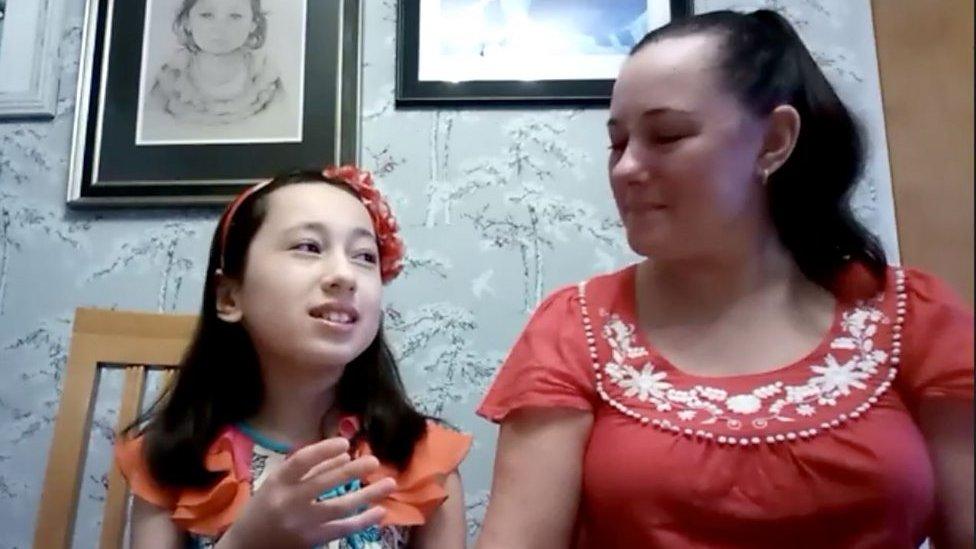Covid-19: 'Vital' children return to classrooms, says Peter Weir
- Published
- comments
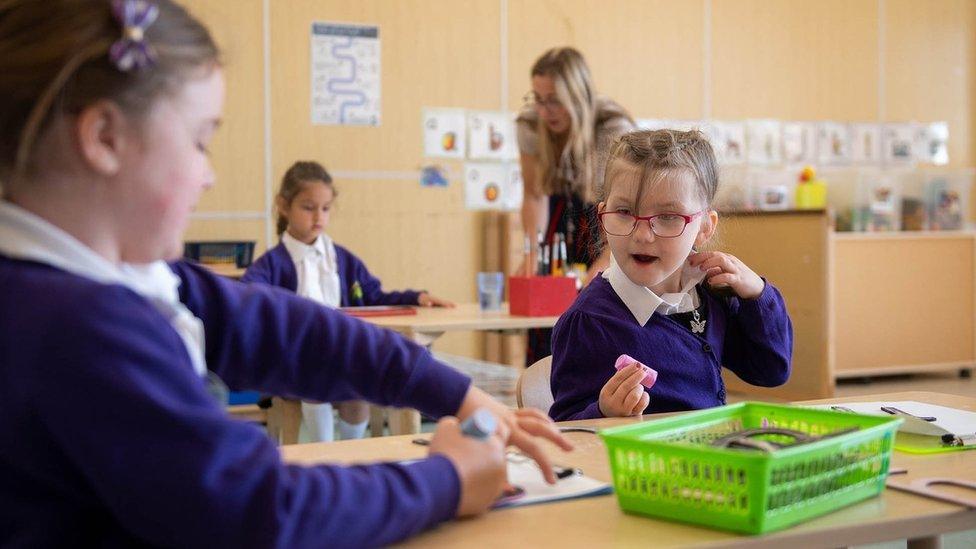
The education minister has said it is "vital" that all children return to school, but broader public health must be considered when making decisions.
Pre-school, nursery and pupils in primaries one to three will return to classrooms on 8 March.
They will then resume remote learning on 22 March to enable the return of pupils in years 12 to 14 until the start of the Easter holidays.
The return to classroom learning has been welcomed by school leaders.
The vast majority of pupils in Northern Ireland have been learning remotely since Christmas.
Peter Weir said the youngest pupils will return first as they are least likely to transmit the virus.
Students doing qualifications like GCSEs, AS, A-levels (in years 12 to 14) and other vocational qualifications like BTEC will return to face-to-face teaching from 22 March.
But pupils in years 4 to 7 in primary and years 8 to 11 in post-primary will not be back in school until after the Easter break at the earliest.
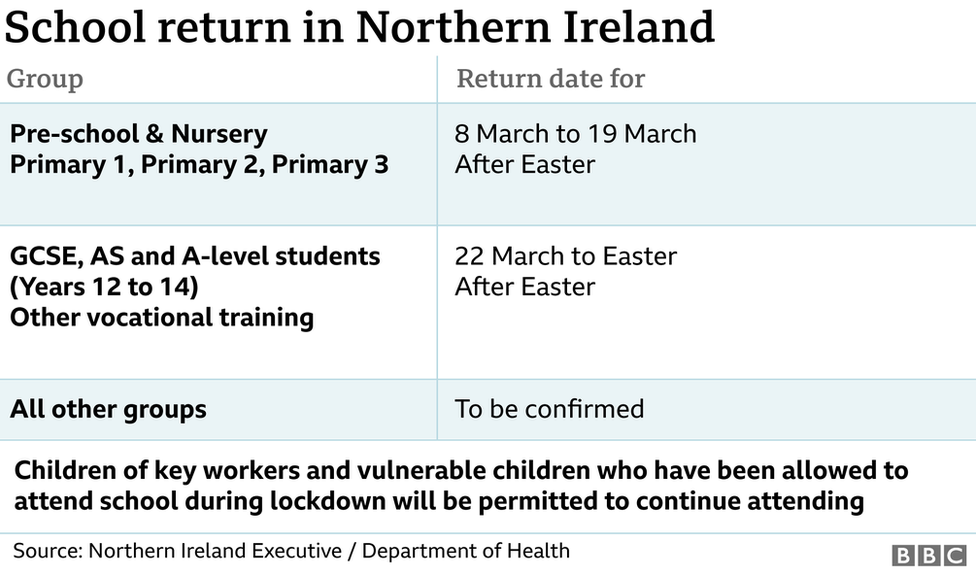
"In terms of the logic of the ordering, for the very young pupils we know they are the lowest risk of transmutability but also, it is very difficult for very young pupils to engage in a level of remote learning," the minister told the BBC's Good Morning Ulster programme.
"For those key examination years there is a need for a period of assessment and preparation for that and that's why those two groups have been given that level of prioritisation.
"I would ideally like to see the situation where everybody is back on the 8th, but clearly there are concerns from the broader public health point of view, from the Department of Health, and therefore it's about the executive following that health advice."
Mr Weir said that schools provide "very safe places" for students, but the "return to schools actually has wider behavioural impacts within society".
The minister acknowledged that while some parents will be "relieved and glad" at the decision, not everyone is happy.
"There will be others in the groups who aren't immediately going back who will have a sense of frustration and disappointment and I think we do need to, as a society, meet that challenge in a constructive manner and get everybody back," he said.
Classroom teaching 'welcome'
Kirsty Andrews, principal of Tullygally Primary in Craigavon, County Armagh, said she was happy that more of her pupils will be back in school but she still has many questions.
Like many schools, Tullygally Primary has remained open throughout lockdown for the children of key workers and vulnerable children.
"My staff have worked very hard with online learning but I think that children learn better when they're in school and when they're face-to-face," Ms Andrews told BBC News NI.
"While I welcome the idea that it's going to be face-to-face teaching and we're going to get away from online learning, what do we do whenever parents ask us: 'How come it's safe for my child to go into P3 but it's not safe for my child to go into P5?'
She would like teachers to be given priority for vaccinations as more pupils go back to class, but said schools also need a plan they can stick to.
"We do need to have a clear path out of this - we don't want to open, shut, open, shut, open, shut because that's not good for anybody," she said.
'Sensible and logical'
The Irish National Teachers Organisation (INTO) said that "the phased return to schools from the executive has posed as many questions as answers".
But the Association of School and College Leaders (ASCL) said it was "very sensible and logical" to open schools on a phased basis.
ASCL's regional officer in Northern Ireland, Robert Wilson, said that allowing the youngest pupils to return first was a sensible first step.
"For those in secondary education who would have faced important examinations this summer, the planned return to the classroom on 22 March is very important, although the timing just a week before the start of the Easter holiday is debatable," he said.
"Our exam-age pupils in particular have suffered a difficult and distressing year of disruption and lost learning.
"What is crucial is that pupils return in a way which is safe and sustainable, and which inspires the confidence of education staff and the public."
Mr Wilson also called on the executive to give teachers priority for Covid-19 vaccination.
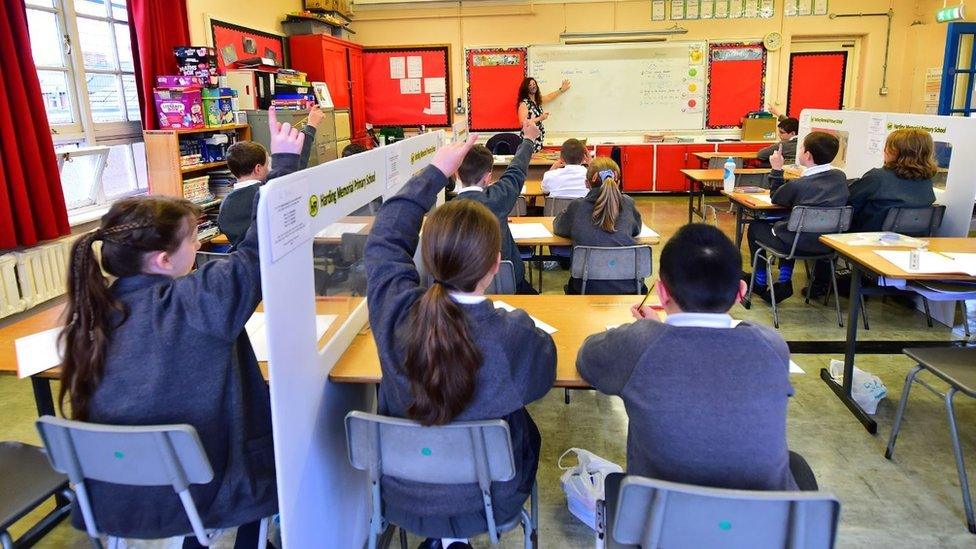
Teachers' union NASUWT said the phased return was "the basis of a good plan to get children back to school".
However, Justin McCamphill told the BBC's Good Morning Ulster programme there are concerns over exam year pupils going into school.
"We see that the [education] minister has said that all exam year pupils go in, our view is they only really should be going in if they need to carry out assessments," he said.
"We want to know what the Department of Education is going to do to ensure all risk assessments in schools are updated, that control measures are reinforced, that we have proper ventilation, that we have social distancing in place and those measures should now be more achievable when there are fewer pupils in the schools."
- Published18 February 2021
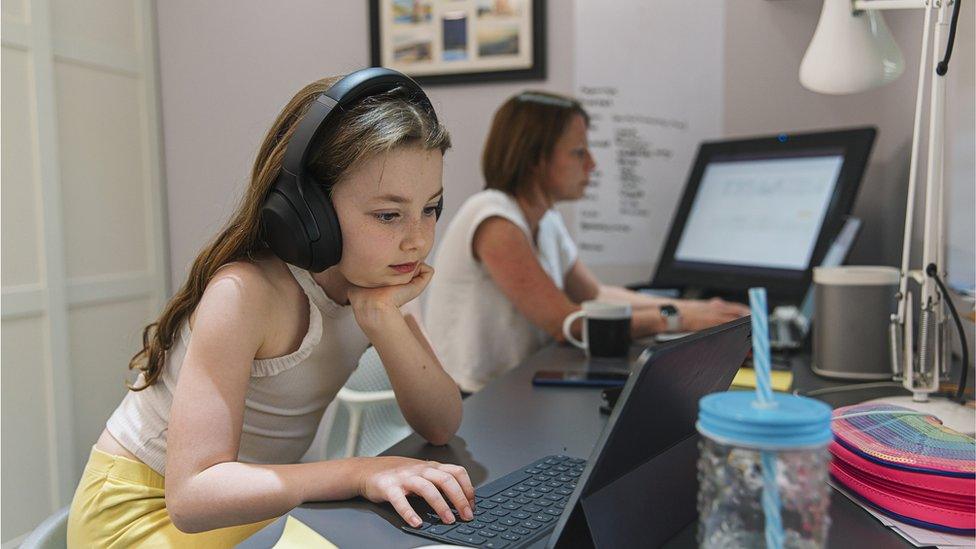
- Published18 February 2021
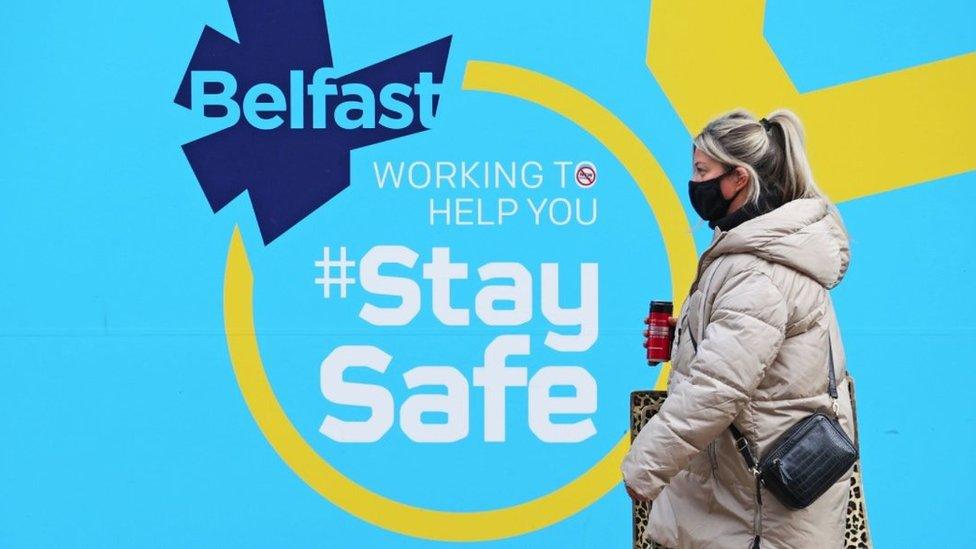
- Published18 February 2021
